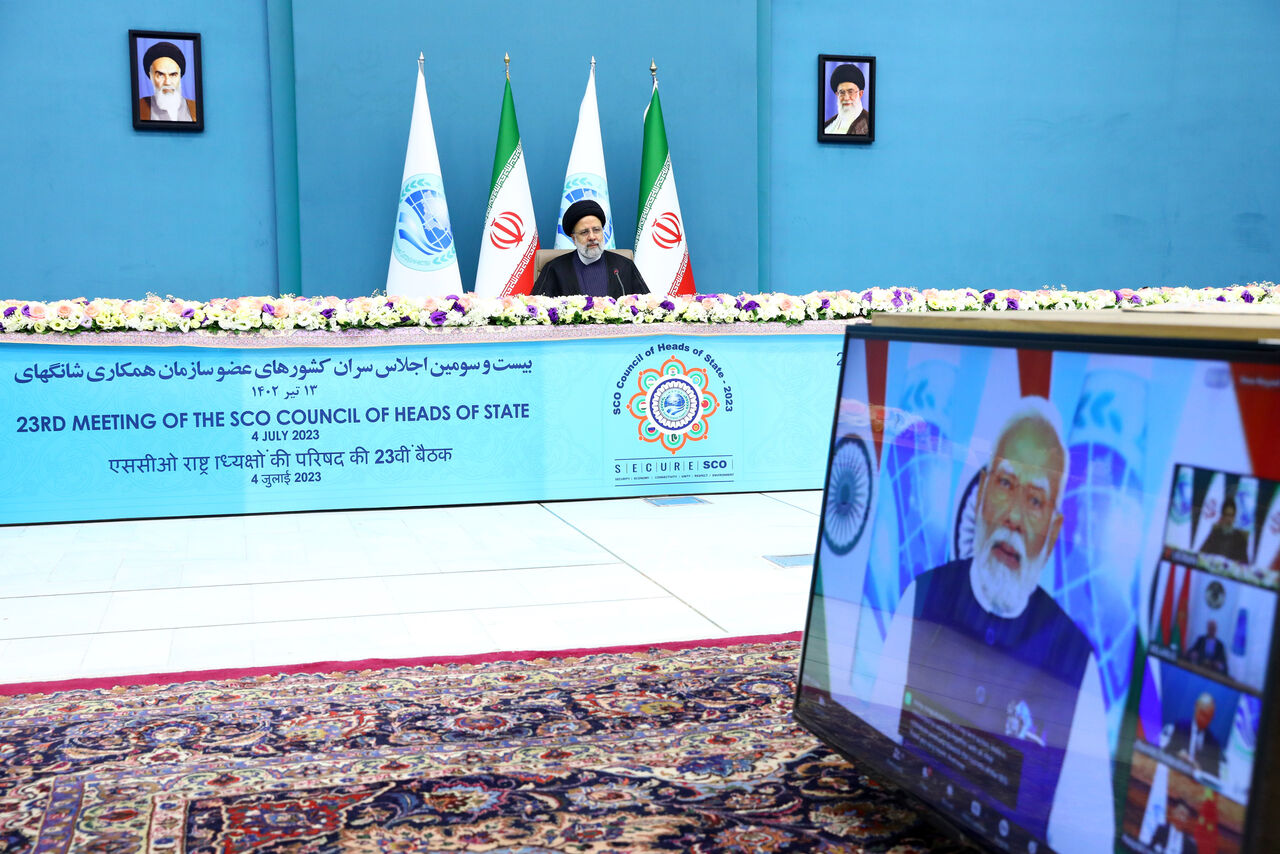Iran joins SCO, China promotes cooperation
With India as host of the virtual summit, Iran becomes the Shanghai Cooperation Organisation’s ninth member. China praises the Belt and Road Initiative, slamming the use of national security as a tool of economic coercion. Sparks fly between India and Pakistan over terrorism.
New Delhi (AsiaNews/Agencies) – Iran has become the ninth member of the Shanghai Cooperation Organisation (SCO) during today’s virtual summit of heads of state and government chaired by India. The political, economic, and security forum also includes Russia, China, India, Pakistan and four Central Asian countries.
In Tehran, Iranian President Ebrahim Raisi hailed the historic moment, as the Iranian flag was hoisted along with the others in front of SCO headquarters in Beijing.
Founded in 2001 by China, Kazakhstan, Kyrgyzstan, Russia, Tajikistan and Uzbekistan, SCO saw its first enlargement with the entry of India and Pakistan in 2017.
After Iran, Belarus is expected to follow soon. Like Mongolia and Afghanistan, it already has observer status, and at this summit, it signed a memorandum of commitment for full membership.
Fourteen more countries are dialogue partners, like Turkey, Saudi Arabia, the United Arab Emirates, Qatar, and Egypt. Overall, SCO’s ambitions are big and go far beyond security cooperation.
With the addition of Iran, it now extends over an area of 36 million square kilometres, three fifths of Eurasia, with a population of 3.4 billion people, or 43 per cent of the world’s population and 30 per cent of its GDP.
On this occasion, Chinese President Xi Jinping called on partners to pursue pragmatic cooperation to speed up economic recovery. In a clear swipe at the United States, he urged action against protectionism, unilateral sanctions, and the use of national security as a tool of economic coercion.
In rejecting attempts to "build walls" or disrupt industrial and supply chains, the Chinese leader noted that synergies between the Belt and Road Initiative and development strategies of various countries should be encouraged.
Yet, despite the lofty remarks, national interests still keep SCO members apart. The host of this summit, Indian Prime Minister Narendra Modi, centred his address on the forum’s primary purpose, security.
In his speech, he referred to “Some countries [that] use cross-border terrorism as an instrument of their policies and give shelter to terrorists,” at not-so-veiled reference to Pakistan but also China, which supports Islamabad and blocked a resolution at the UN on this issue a few days ago.
“SCO should not hesitate to criticise such countries. SCO countries should condemn” terrorism. “There should be no double standards," Modi said.
For his part, Pakistani Prime Minister Shehbaz Sharif warned that, “Any temptation to exploit [terrorism] for diplomatic gain must be resisted at all costs. State terrorism, along with all other types and expressions of terrorism, must be strongly denounced.”
For Russian President Vladimir Putin, today's summit was his first opportunity to appear at an international event, albeit in virtual form, since the Wagner Group rebellion more than a week ago.
The Russian president reassured his colleagues that his country was stable and united, stressing its readiness to boost ties with SCO partners, including trading in local currencies.







.png)










